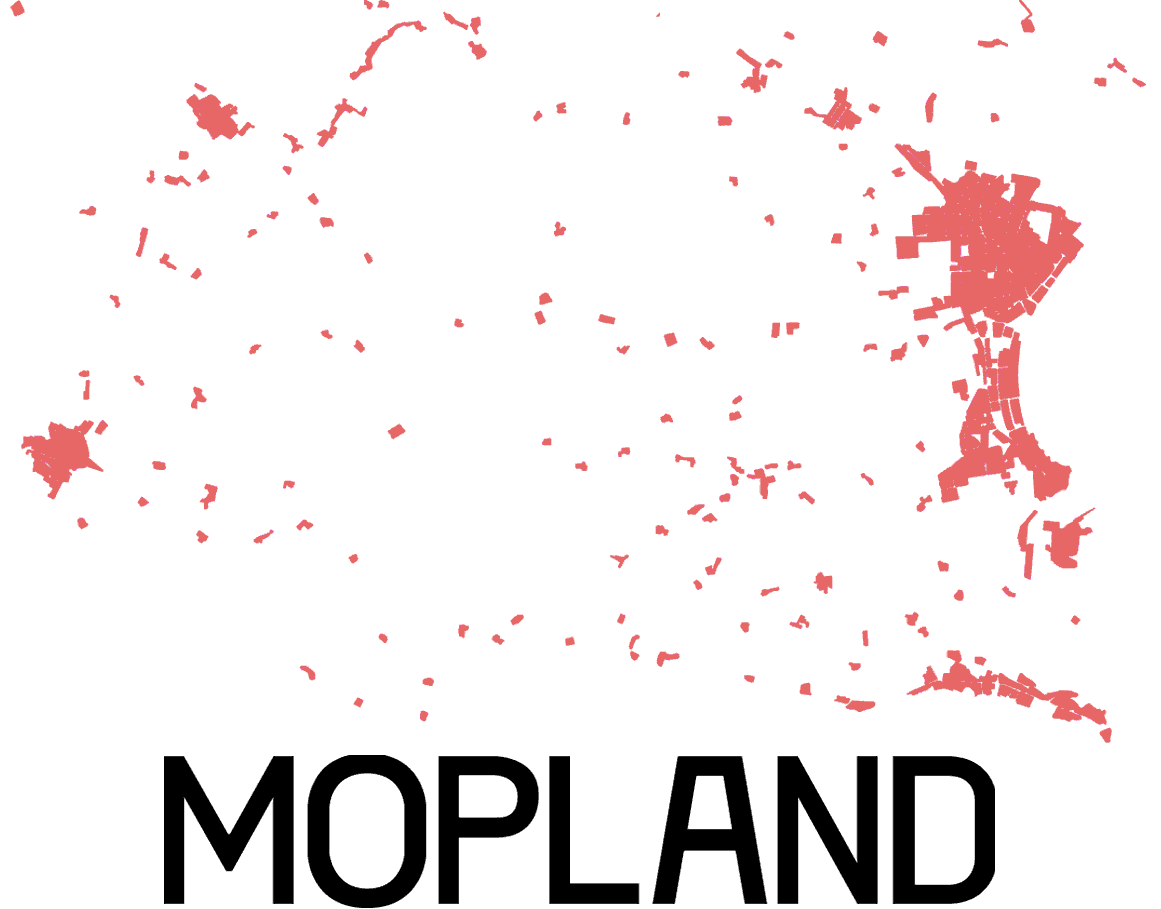The MOPLAND project operates to promote participatory, representative, and transparent decision-making approaches in Spatial Planning as well as to strengthen governance and science-policy interface for land-use and land cover change sustainability. MOPLAND is a 1.5-year research project funded under the 1st edition of the FCT RESTART Programme.
The project is aimed specifically at co-creating a conceptual model of Participatory Land-Use Modelling in Spatial Planning. Such representation is expected to frame participatory modelling in Spatial Planning, that stems from scientific research, but it is also collaboratively created by discussion participants.
The outcomes from MOPLAND’s research, participatory spatial modelling, and social engagement will be incorporated in a tool developed to assist stakeholders collectively envision adaptative co-planning land-use and land-cover (LULC) scenarios.
Objectives
The overarching goal of the MOPLAND project is to foster effective and impactful forms of governance in service of land-use planning in the Portuguese context by developing a participatory modelling approach involving key stakeholders in the design of land-use plans and in the discussion of local policies. And, thus, to provide a way forward to better link the Spatial Planning, LULC change research, social engagement, and decision-making domains.
Participatory Modelling
Develop a conceptual model for participatory land-use modelling, co-created with key stakeholders.
Research-to-Policy Integration
Foster inclusive governance by exploring participatory approaches in existing frameworks, assessing barriers and opportunities.
Decision Support Tool
Develop a tool to help stakeholders visualize and co-plan adaptive land-use and land-cover scenarios.
Social Engagement
Enhance social engagement by integrating public participation and fostering stakeholder dialogue to improve land-use planning.
Outputs
Books & book chapters
*
Faria de Deus, R., Tenedório, J. A., & Rocha, J. (2021). Modelling Land-Use and Land-Cover Changes: A Hybrid Approach to a Coastal Area. In: Tenedório, J. A., Estanqueiro, R., & Henriques, C. D. (Ed.), Methods and Applications of Geospatial Technology in Sustainable Urbanism (pp. 57-102). IGI Global.
http://doi:10.4018/978-1-7998-2249-3.ch003
Publications
*
Faria de Deus, R (2025). MOPLAND: A Co-construction Conceptual Model for Participatory Land-Use Modelling in Spatial Planning – Data Management Plan (Version 1). Zenodo. https://doi.org/10.5281/zenodo.17038281
*
Faria de Deus, R. (2025). Transformação de uso e ocupação do solo. In INFORGEO – Revista de Informação Geográfica de distribuição gratuita (N.º 27, pp. 76–79). Associação Portuguesa de Geógrafos. ISBN 978-898-35579-0-7
https://www.apgeo.pt/sites/default/files/inforgeo_27_-_2025_revisao_0.pdf.
*
Faria de Deus, R., & Tenedório, J. A. (2025). Booklet of the Exhibition “Territórios em Mudança: O caso de Portimão 1947–2047” (Territories in Transition: The Case of Portimão 1947–2047). Zenodo. https://doi.org/10.5281/zenodo.17158564
*
Faria de Deus, R., Tenedório, J. A., Pumain, D., Rocha, J., & Pereira, M. (2023). 100 years of land-use and land-cover data: What has been the effect of spatial planning in coastal land-use and land-cover change? Sustainability, 15(9), 7636. http://dx.doi.org/10.3390/su15097636.
*
Faria de Deus, R., & Tenedório, J. A. (2021). Coastal land-use and land-cover change trajectories: Are they sustainable? Sustainability, 13(16), 8840. https://doi.org/10.3390/su13168840.
Thesis / Dissertation
*
Faria de Deus, R. (2015). GIS-based measurement, analysis and modelling of land-use and land-cover change in coastal areas: The case of the Algarve, Portugal (Tese de doutoramento). [PhD dissertation, Universidade Nova de Lisboa]. http://hdl.handle.net/10362/16262.
Datasets
*
soon
Online Resources
*
Tenedório, J. A. (2025, January 31). Relevância dos Modelos Espaciais Quantitativos para Planeamento e Ordenamento do Território (Relevance of quantitative spatial models for Spatial Planning) [Workshop presentation]. 1st Participatory Workshop “Together for Sustainable Territories,” organized by the MOPLAND research team. YouTube. [Video in Portuguese]. https://youtu.be/q6Ev8_t0XgE
*
Gomes, E. (2025, May 15). Compreender as Mudanças no Território: De que forma podemos antecipar as transformações no uso e ocupação do solo através da modelação espacial colaborativa? (Understanding Territorial Changes: How can we anticipate land use and land cover transformations through collaborative spatial modelling?) [Workshop presentation]. 2nd Workshop “Spatial Modelling and Territorial Transformations,” organized by the MOPLAND research team. YouTube. [Video in Portuguese]. https://www.youtube.com/watch?v=c9ysELlnLUU
Participatory Workshop Sessions
The project involves a collaboration between the MOPLAND team, local government, and key stakeholders in two Portuguese case studies to perform participatory workshops.
Participatory workshop’s main purposes:
1
Co-create a shared representation of how stakeholders perceive the land-use and land-cover system to function in the territory concerned, as well as the way they understand that participatory modelling should be introduced into Spatial Planning,
2
Enable adaptation and anticipation, by gathering key stakeholders together to promote collaborative decision-making as regards future sustainable land-use planning.
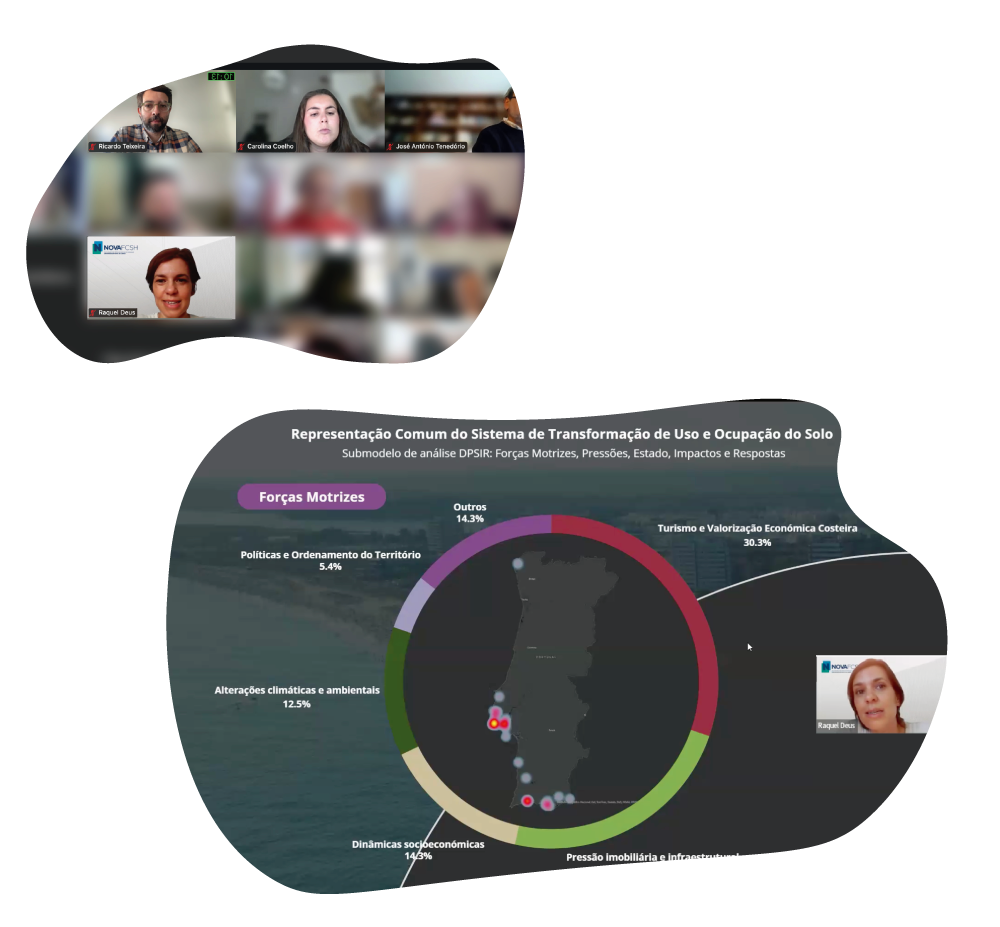
Activities
Booklet
“Territórios em Mudança” – Portimão 1947–2047
This booklet brings together the contents of the exhibition that, through aerial photographs and orthophotomaps, revealed the transformation of land use and land cover in Portimão over the course of a century.
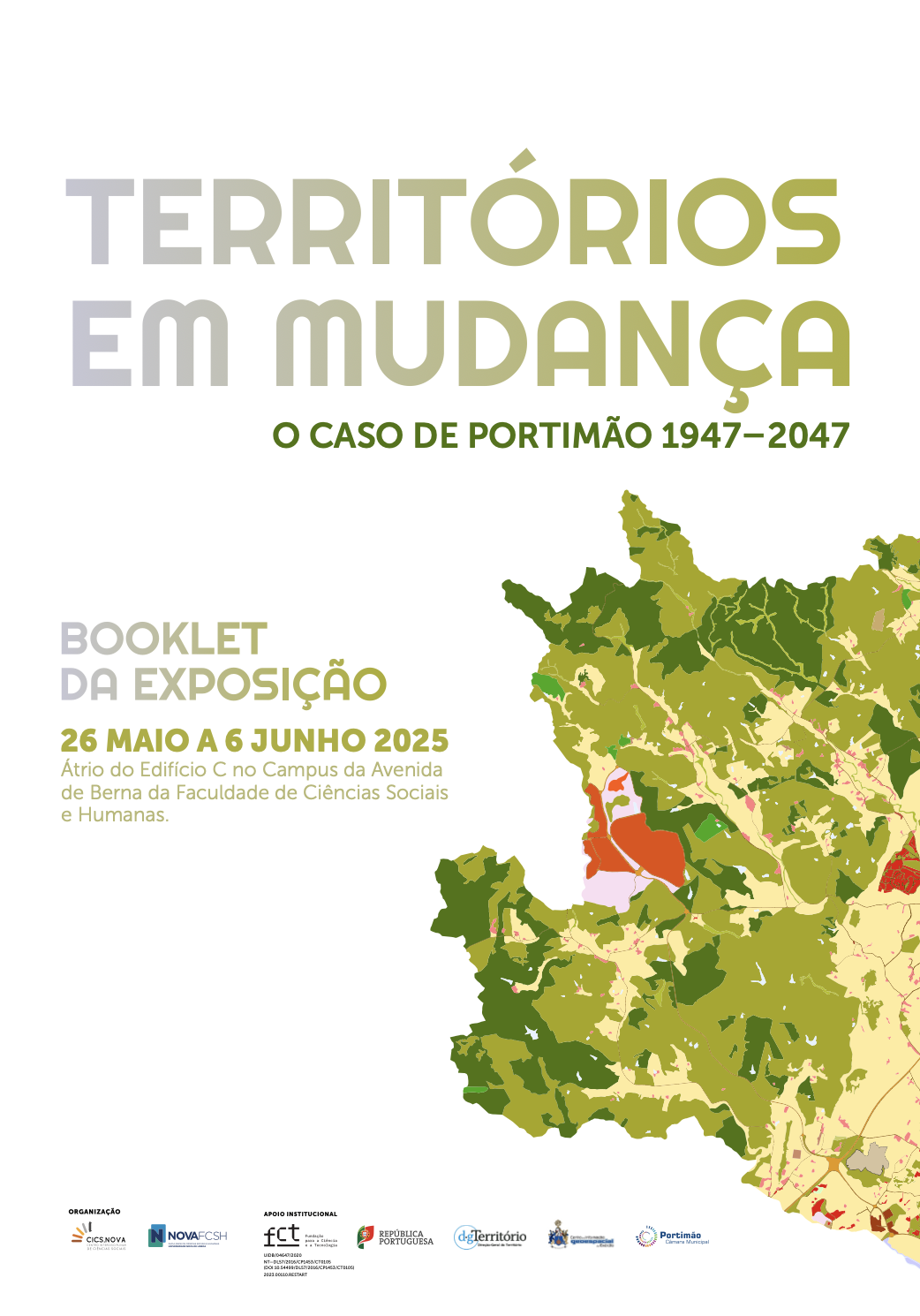
Open Class
Land Use Transformations in Lisbon (1995–2018)
In June, NOVA FCSH hosted students from Colégio Académico de Lisboa for an Open Class and immersive visit on the major land use transformations in Lisbon, within the scope of the MOPLAND project.

Exhibition Opening
“Territórios em Mudança” –
The Case of Portimão 1947–2047
This exhibition presents the evolution of land use and land cover in the municipality of Portimão over a hundred-year period. Through the analysis of multitemporal geographic data, historical urban processes are revealed, helping to explain the transformations observed from 1947 to 2047.
Opens on May 26 at 5:00 PM in Atrium of Building C, on the Avenida de Berna campus of NOVA FCSH
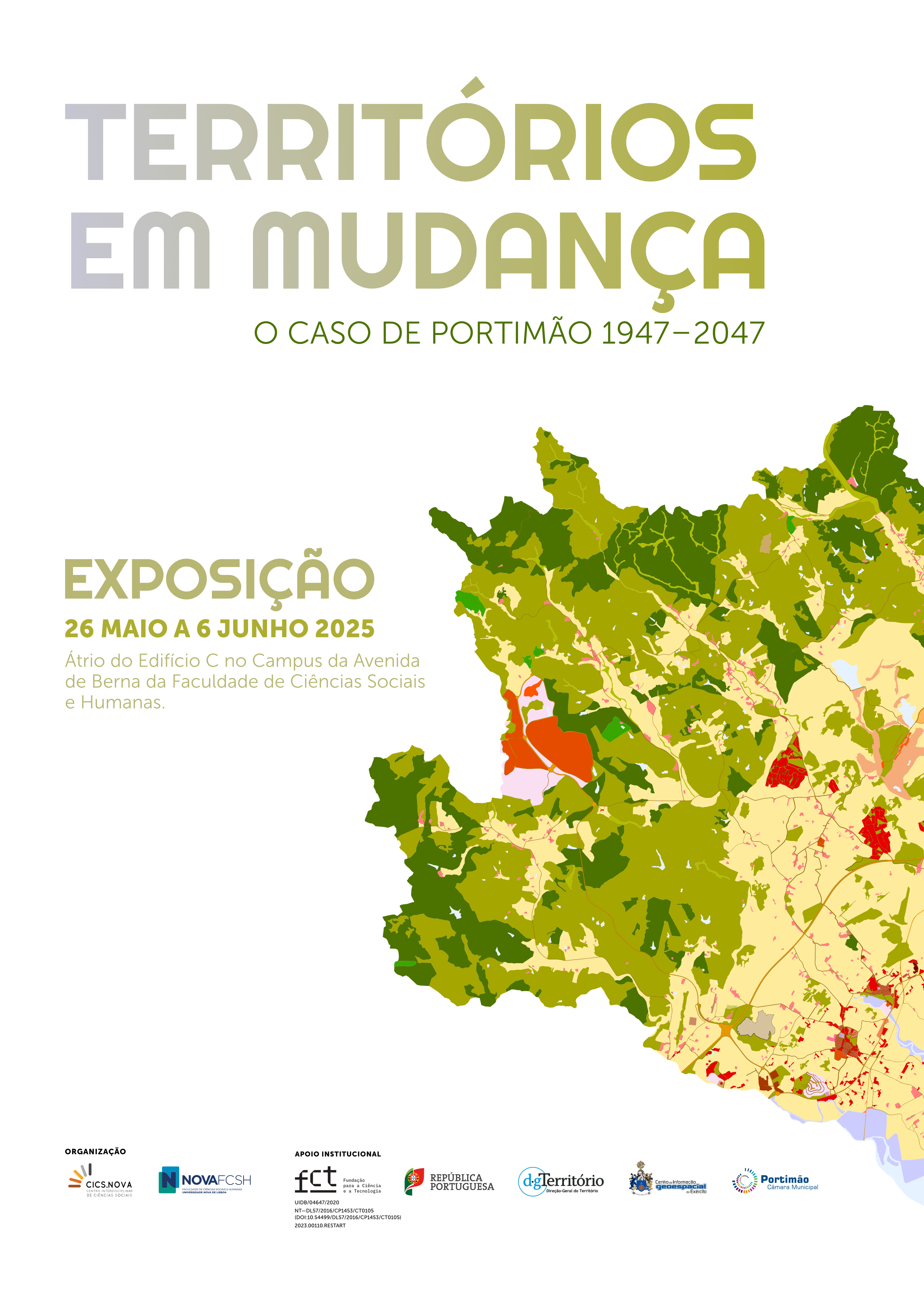
2nd Participatory Workshop
Together for Sustainable Territories
It aims to co-construct future land-use and land-cover scenarios for coastal municipal territories in light of current societal, environmental, and technological challenges.
05/05/2025
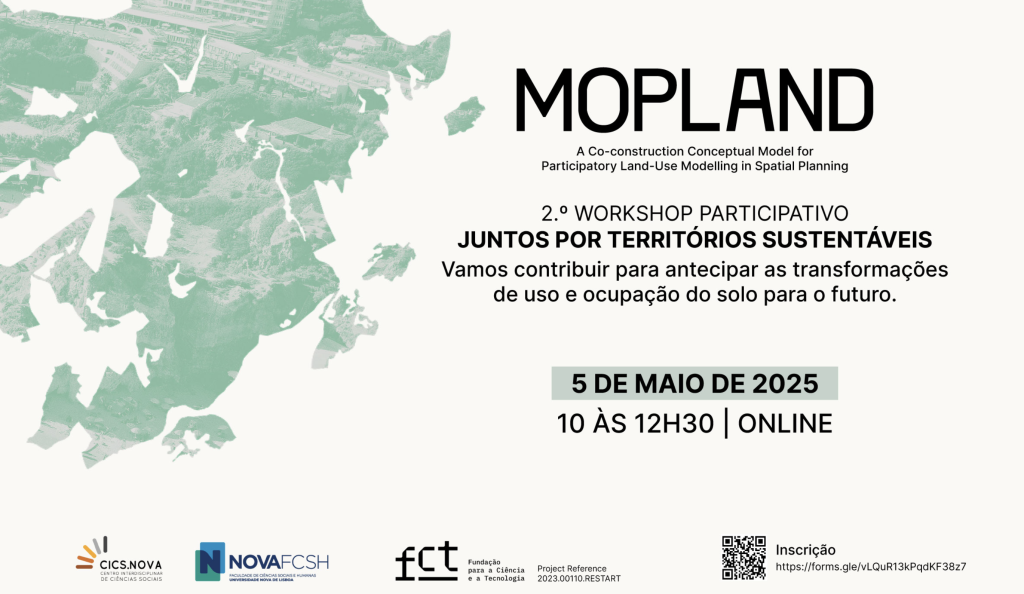
Partnership “Cientificamente Provável – Rede de Bibliotecas Escolares” and CICS.NOVA
Fostering Critical and Spatial Thinking About the Territory
Through a partnership between the MOPLAND team at CICS.NOVA and Rede de Bibliotecas Escolares (in english: School Libraries Network), students are introduced to the intersection of social science and spatial modelling, fostering critical thinking about land use and sustainable territorial planning.
April 2025
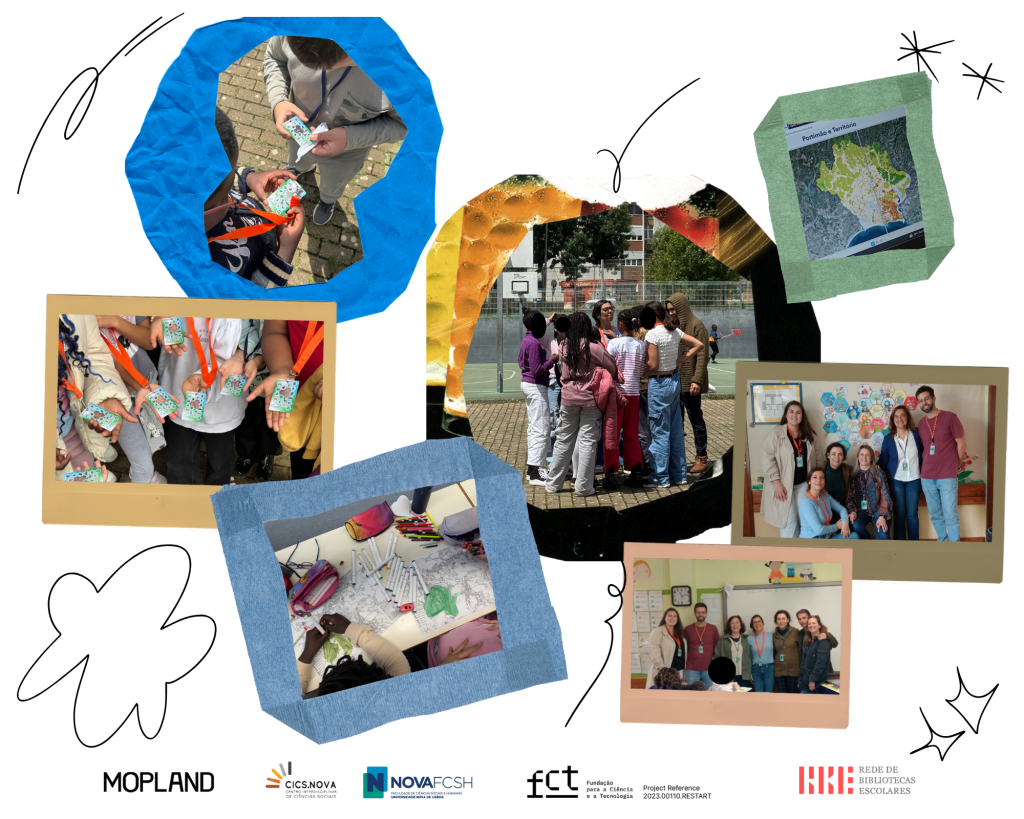
Labs
“Nós Fazemos o Futuro”
The MOPLAND project drives the “Nós Fazemos o Futuro” (in English: “We Make the Future” labs, with the next initiative scheduled for May. Follow the preliminary results of the creative spatial modelling labs with children and young people.
April–May 2025
1st Participatory Workshop
Together for Sustainable Territories
These participatory workshops aim to promote social engagement in land use land cover changes spatial modelling in coastal municipalities, allowing the general public to share their opinions, expectations, and visions about these territories.
31/01/2025
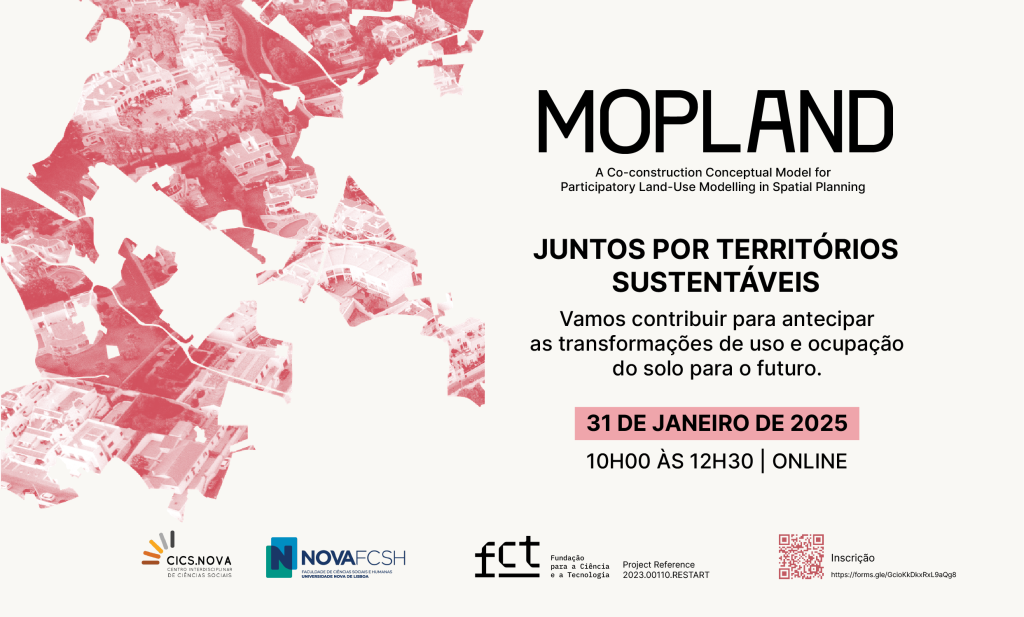
Meet our team
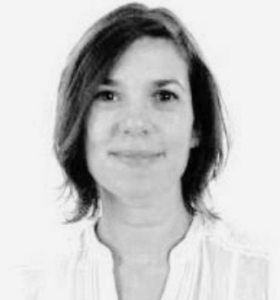
Raquel Faria de Deus
Geography
CiênciaVitae
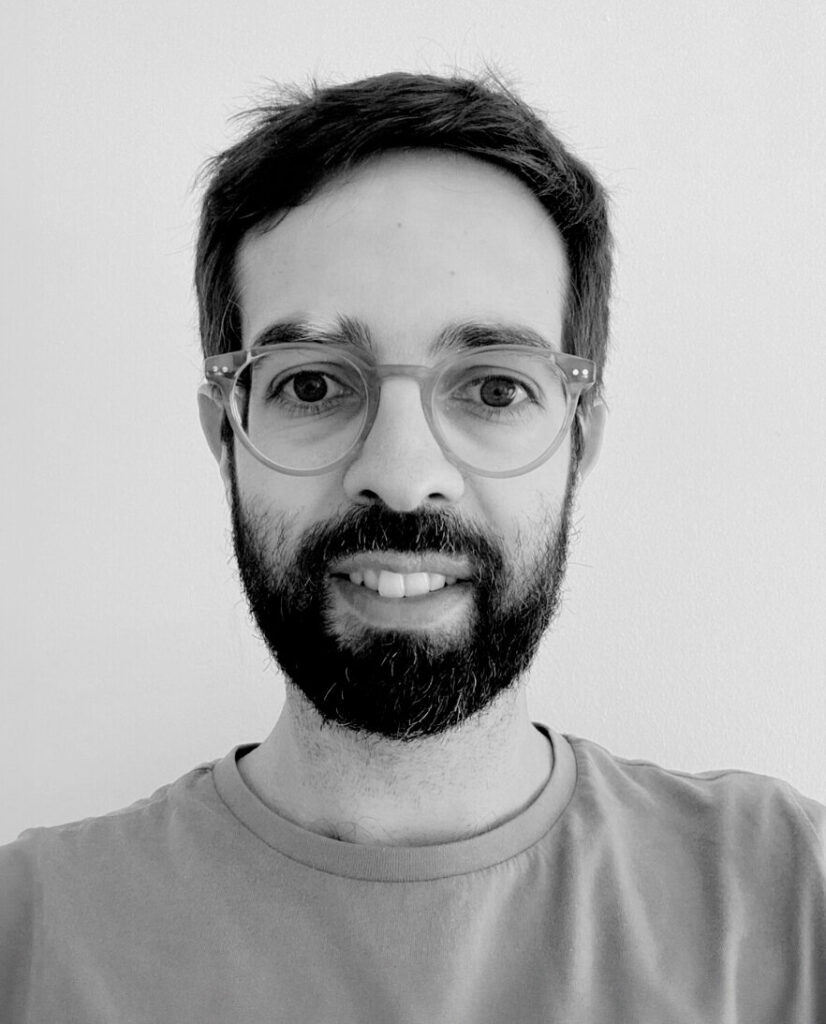
Ricardo M. Gaspar Teixeira
Social Sciences
CiênciaVitae
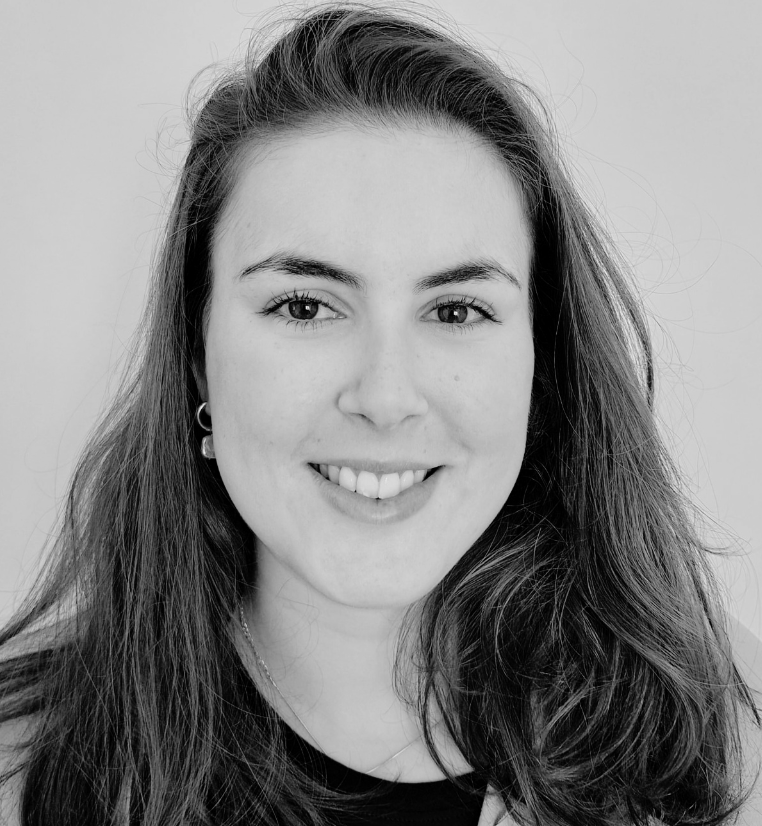
Carolina Coelho
Geography
CiênciaVitae
Contact
CICS.NOVA
Colégio Almada Negreiros | Campus de Campolide
3rd floor – Room 333
1070-312 Lisboa
Portugal
For further information, contact us
Funding
Portuguese funding agency for research in science, technology and innovation.
Ministry of Science, Technology and Higher Education.

